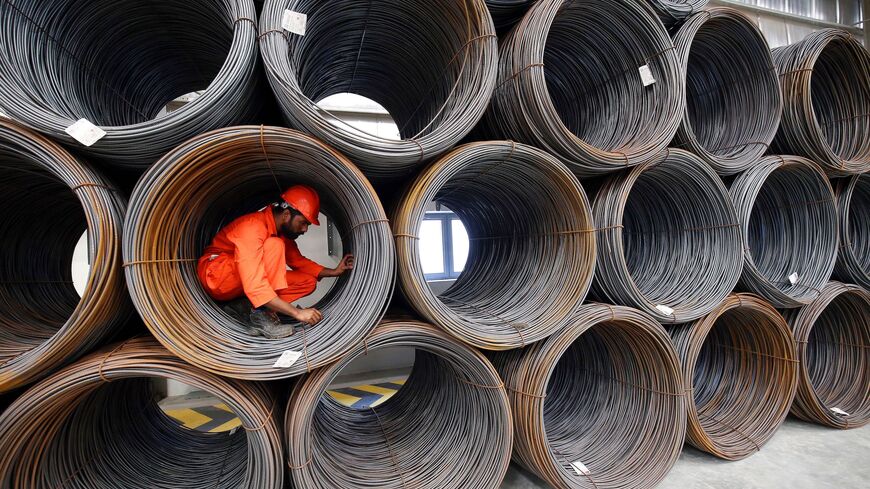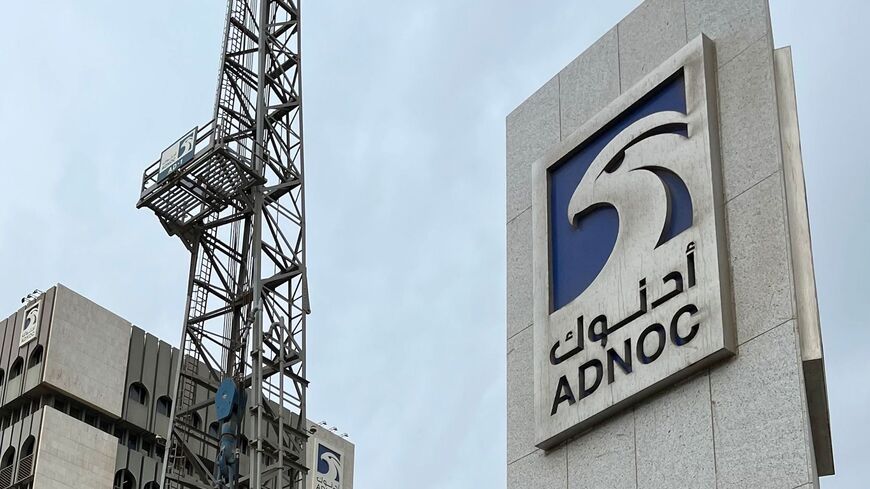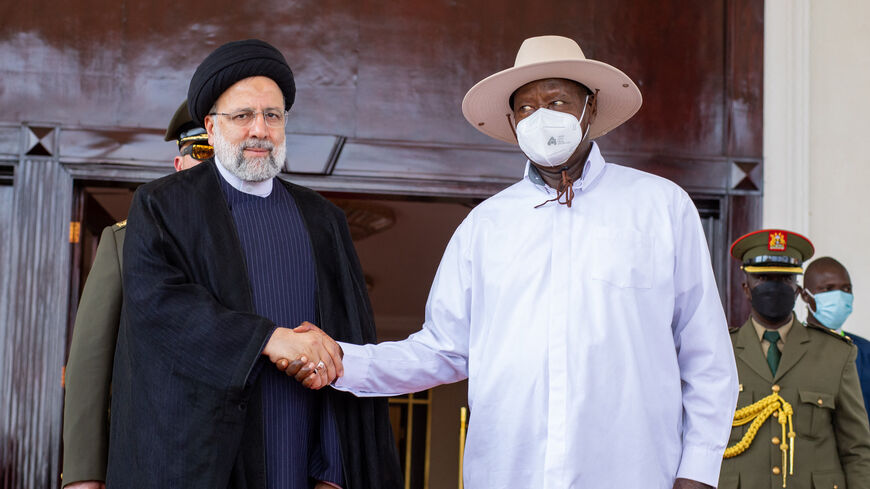Emerging Gulf tax order to challenge family businesses
Al-Monitor Pro Members
Sebastian Castelier
Business journalist covering Gulf economies
Feb. 24, 2023
Multinationals are weighing the costs of increasing taxation across Gulf Cooperation Council (GCC) economies. But long-term implications are more acute for family-owned businesses that have turned non-universal taxation to their benefit for decades, making it a competitive advantage to retain their grip on non-oil economies. On top of the challenges of a new tax environment, they face the risk of failing to adapt to changing market conditions.
- Family-owned businesses are the backbone of the world’s economy, contributing to over 70% of global gross domestic product (GDP). They hold even greater importance in the GCC, accounting for about 90% of the private sector economy. “We are the private sector in our part of the world,” wrote the Family Business Council-Gulf (FBCG) website, a Dubai-based non-profit family business organization.
- Most Gulf family businesses are household names in the region. The Olayan Group in Saudi Arabia was founded in 1947 and owns $8 billion in assets. The Alshaya Group, first established in Kuwait in 1890, is a leading brand franchise operator with over 4,000 outlets across the Middle East region, Turkey and Europe. UAE's Majid Al Futtaim Holding owns $16.5 billion worth of assets and operates 423 Carrefour hypermarket and supermarket stores. Cars importer Saud Bahwan Group was established in 1965 as Toyota’s distributor in Oman. The Alfardan Group in Qatar was established in 1954 from its roots in the once-vibrant pearling industry. Today its portfolio of activities ranges from jewelery to financial exchange, car dealing, hospitality and marine services.
Tax landscape
- The UAE will levy a 9% corporate tax from June 2023 on taxable income exceeding AED 375,000 ($102,000), irrespective of the company's ownership. The approach contrasts with practices in Saudi Arabia, Qatar and Kuwait, where companies owned by nationals and/or GCC citizens enjoy tax exemptions or highly favorable rates.
- The Gulf’s business hub introducing universal corporate taxation — which is already in force in Oman — sets the stage for a regional shift. Yet, equal treatment for multinationals and GCC-owned businesses will be slow to materialize, particularly in countries where populist forces, such as in Kuwait, exert substantial influence over economic policies in favor of their own citizens.
- Bahrain, the last GCC country not committed to levying non-oil corporate tax, has “incorporated” corporate tax into its plans, its minister of sustainable development said in January. An announcement could be made in the second half of 2023, said Mubeen Khadir, Head of Tax at accounting firm KPMG Bahrain, speaking in a personal capacity. “I think it will follow the UAE approach to taxation. Family businesses know that Bahrain needs to diversify its revenue base,” he told Al-Monitor.
- The key factor inciting corporate taxation in the Gulf, and a justification for extending it to local businesses, is a 15% Global Minimum Tax rate on multinationals. The OECD/G20 agreement pushes the region to take a slice of profits earned within their borders rather than seeing them taxed abroad. “We are witnessing the century’s biggest tax change. It is a historic moment globally and for GCC countries where tax dynamics are changing significantly,” said Rushabh Vora, a tax expert in the UAE.
- The tax era will compel family businesses to be “more organized,” to set up IT tools to produce real-time financial data and to “relook their business structures,” experts explained. “The mindset that prevailed for decades will not hold true today,” Vora said. Emirati family business Al-Futtaim Group partnered with software maker SAP in January 2023 to integrate its systems in the cloud and operate a “full digital transformation.”
- Vora added that “shifting profits from one entity to another can no longer be seen as moving money from one pocket to another. They need tax efficient legal structures.” According to Khadir, one of the “biggest challenges” ahead is to distinguish between business expenses and family expenses. “They will need to be clear on this demarcation.”
Market conditions
- “Many Gulf family businesses have operated for a very long time in a vacuum where they did not experience competition due to exclusive arrangements and foreign ownership restrictions. The lifting of some of these restrictions and introduction of taxation will require them to be more competitive,” Khadir said. A 2017 study found that increased competition was a concern for 48% of family businesses in the Gulf.
- Also, the Financial Times reported in December 2021 that the UAE “told some of its biggest business families that it intends to remove their monopolies on the sale of imported goods.” Family dynasties have thrived for decades on reaping profits from a regulation that compelled multinationals to appoint a local company to sell their goods across Gulf markets.
- Saudi Arabia is also opening up to global investments. It stripped the religious police of its privileges, relaxed gender segregation rules and allowed women to drive. But scratch beneath the surface and the greatest threat to family businesses is homegrown. The kingdom’s sovereign wealth fund, the Public Investment Fund (PIF), floods the market with new government-owned companies to lead economic diversification.
- Evolving is then a matter of survival to not fall behind new players, foreign and sovereign. “This is really 'let’s wait and see,' but in the past, the more resilient family businesses have shown that they are willing to engage in professionalization,” said Mohamed Al Moosa, a program manager at Pearl Initiative. The Emirati non-profit organization works to improve corporate accountability and transparency in the Gulf.
Opportunities
- Despite challenges, Gulf governments have little interest in throwing out of business companies run by some of the region’s most influential families, who are closely linked to key players in state institutions.
- Dubai launched the ‘Thabat’ program in September 2022 to “boost” competitiveness and continuity of family businesses. The program aims to “transform 200 family business projects into major companies by 2030.” On the regulatory front, the UAE’s new family business law came into force in January 2023 to regulate family businesses’ governance and “facilitate their continuity.” Al Moosa told Al-Monitor succession is a key concern. About half of Gulf family businesses’ are “transitioning” from second to third generation, with many unprepared for it, a 2017 study found.
- Al Moosa said the evolving landscape is “the sign of the GCC economies maturing and moving on to the next level.” He believes youth hold the key to lead a shift that will require “a lot more agility and openness.” He said: “The next generation is educated, capable and excited to take things to the next level. They do not see themselves exclusively as custodians of passing on the baton; they approach family businesses as platforms towards building something greater.” But luring tech-savvy youth would not happen overnight; family businesses will need to enhance their appeal.
Scenario 1: UAE’s corporate tax does not move the needle
The UAE’s current tax regime for non-oil businesses is already universal at a 0% tax rate for all, and a shift to a universal 9% tax stays in line with the previous approach to corporate taxation. But this scenario is unlikely. What moves the needle is not the tax rate per se, but the underlying long term message the change sends across: companies, irrespective of their ownership, will all be pressed into service to contribute to Gulf governments’ fiscal stability.
Scenario 2: Family businesses hit back at change
Discontent for policies viewed as an attack on the protection of local interests might be muted, but policymakers will need to address it. Yet, frontal opposition to state reforms is rare in the Gulf, and the writing is largely on the wall: Gulf governments will push ahead, shrinking a longstanding indiscriminate social contract they can no longer afford. Therefore, merchant families are likely to choose to see the glass half full and focus on opportunities offered by GCC economies maturing. Public sector procurement will likely help, remaining a background tool to smoothen the transition. “The post-Covid-19 GCC is quite frankly a different animal. Whether that is Expo 2020, World Cup 2022, attracting global businesses or regional sovereign wealth funds investment into local markets, it sets the tone; it provides family businesses a lens into what is possible. If the pie was not getting bigger, then such changes would be a harder sell,” Al Moosa said. It implies that the strategy followed by Gulf governments leaves little room for error as merchant families will keep a close eye on data.
Despite the UAE, Oman and possibly Bahrain signaling that universal corporate taxation is the new normal, Saudi Arabia, Qatar and Kuwait so far show no willingness to end tax regimes designed to favor locals. Family businesses that put their house in order will take advantage of a growing pie. “I do not see businesses going under because of taxation. Most countries have corporate taxation with higher labor costs so if your margins and profits are so low that a 10% corporate tax is going to shut you down, then there may be something wrong with your business fundamentals anyway,” Khadir said. Also, Gulf family businesses have historically seen themselves as “custodians of not just their own wealth, but of the cultural value of being part of the society and giving back through charity,” Al Moosa said. The coming changes are unlikely to end the pivotal role of family businesses in Gulf economies, but their prominence might as the state exerts greater control through regulation and taxation.
Sebastian Castelier has been reporting on GCC countries since 2016, with a focus on how the oil-rich region navigates the long-term energy transition economically, socially and politically. He has been a contributor to Al-Monitor since 2019 and writes for various publications, including Haaretz, Al Jazeera, The Independent and Le Temps, among others.
We're glad you're interested in this memo.
Memos are one of several features available only to PRO Expert members. Become a member to read the full memos and get access to all exclusive PRO content.

Already a Member? Sign in
The Middle East's Best Newsletters
Join over 50,000 readers who access our journalists dedicated newsletters, covering the top political, security, business and tech issues across the region each week.
Delivered straight to your inbox.
Free
What's included:
Free newsletters available:
- The Takeaway & Week in Review
- Middle East Minute (AM)
- Daily Briefing (PM)
- Business & Tech Briefing
- Security Briefing
- Gulf Briefing
- Israel Briefing
- Palestine Briefing
- Turkey Briefing
- Iraq Briefing
Premium Membership
Join the Middle East's most notable experts for premium memos, trend reports, live video Q&A, and intimate in-person events, each detailing exclusive insights on business and geopolitical trends shaping the region.
$25.00 / month
billed annually
$31.00 / month
billed monthly
What's included:
Memos - premium analytical writing: actionable insights on markets and geopolitics.
Live Video Q&A - Hear from our top journalists and regional experts.
Special Events - Intimate in-person events with business & political VIPs.
Trend Reports - Deep dive analysis on market updates.
We also offer team plans. Please send an email to pro.support@al-monitor.com and we'll onboard your team.
Already a Member? Sign in







